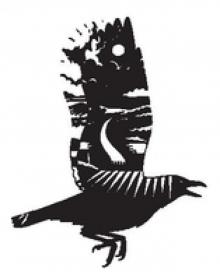- Home
- Iain M. Banks
Surface Detail Page 23
Surface Detail Read online
Page 23
Even then, still a child, she had known she was special, known that she was capable of doing pretty much whatever it was possible to do within the Culture. SC would have seemed like the obvious target for her aims and aspirations. But she hadn’t wanted to be in SC; she wanted to be in Quietus, the service everybody seemed to feel was a second best. It was unfair.
She had made her decision then, way back, before her drug glands were developed enough to use with any skill or finesse, before she was sexually mature at all.
She studied, trained, learned, grew a neural lace, applied to join Contact, was accepted, applied herself, both diligently and imaginatively within Contact, and all the while waited for the invitation to join SC.
The invitation duly came, and she declined it, so joining an exclusive club many orders of magnitude smaller than that of the elite of the elite that was SC itself.
She applied immediately to Quietus instead, having made her point, and was accepted with alacrity. She began to curtail her use of her drug glands and started the slow changes in her body that would turn her from female to neuter. She also abandoned her use of the neural lace, beginning an even longer process that saw the biomechanical tracery of the device gradually shrink and wither and disappear, the minerals and metals that had composed the bulk of it being slowly reabsorbed into her body. The last few parti-cles of exotic matter it had contained exited in her urine via the tiny sexless bud between her legs, a year later.
She was free of SC, committed to Quietus.
Only it could never be that simple. There was no sudden yes-or-no point when it came to joining SC. You were sounded out first, your intentions were questioned and your motivations and seriousness were weighed in the balance, at first through apparently innocuous, informal conversations – often with people you would have no idea were in any way associated with SC – then only later in rather more formalised settings and contexts where SC’s interest was made clear.
So, in a sense, she had had to lie – or at least constructively deceive – to get what she wanted, which was the formal invitation to join which she could then turn down but use in the future as proof that Quietus had been no second choice, no consolation prize, but rather something she had valued beyond the merits of SC right from the start.
She had finessed it as best she could at the time, giving answers that seemed straight and unambiguous when they were given and which only later, in the light of that obviously planned refusal, revealed a degree of dissemblance. Still, she had been guilty of a lack of openness if nothing else, and of simple dishonesty if you were judging severely.
SC considered itself above bearing grudges, but was patently disappointed. You did not come to the stage of being asked to join it without establishing quite strong relationships with people who had become mentors and friends while in Contact; relationships which normally would be expected to go on developing once you were in SC itself, and it was to those individuals, and even a couple of ship Minds, that she felt she owed apologies.
She duly said sorry and the apologies were duly accepted, but those had been her darkest hours, the moments in her life the memories of which still kept her awake when she wanted to sleep, or woke her up in the middle of the night, and she could never quite shake the feeling that this was the single least-resolved issue in her life, the loose end whose niggling presence would trouble her to the end of her days.
And, even though she had foreseen it, it had still come as something of a disappointment to her that her behaviour meant she existed within Quietus under a faint but undeniable cloud of suspicion. If she would turn down SC to prove a point, might she not repudiate Quietus too? How could you ever fully trust somebody like that?
And, was it not possible that she had never really resigned from SC at all? Might Yime Nsokyi not still be a Special Circumstances agent, but a secret one, planted within Quietus, either for reasons too arcane and mysterious to divine until some point of crisis arrived, or just as a sort of insurance for some set of circumstances still unenvisaged … or even with no clear motive at all beyond establishing that SC could do such a thing simply because it chose to, to prove it could?
She had miscalculated there. She had thought the whole bluff with SC would only prove how utterly dedicated to Quietus she was, and her subsequent flawless behaviour and exemplary service would serve to reinforce the point. It hadn’t worked out like that. She was of more value to Quietus as a symbol – subtly but effectively publicised – of its equality of worth with SC than she was as a functioning and fully trusted Quietus operative.
So she spent a lot of time frustrated; unused, twiddling her thumbs and kicking her heels (when she might have been kicking other people’s ass with SC, as at least one of her friends had pointed out). She had taken part in a few missions for Quietus and had been reassured that she had done well – indeed, near perfectly. Still, she was less used than she might have been, less used than inferior talents who had joined at the same time, less used than her skills and abilities would have implied she ought to be; offered occasional scraps, never anything of real substance.
Until now.
Now at last she felt she was being asked to behave like a true Quietus operative, on a mission of genuine importance, even if it might only be because where she lived happened to be quite close to the place where a Quietus agent was suddenly required.
Well, arguably she’d had bad luck in the way Quietus had chosen to react to her attempt to prove how much she valued it. Maybe that bad luck was just being balanced now. Luck came into it. Even SC recognised a place for chance, and being in the right place at the right time was, if not a gift, certainly a blessing.
Contact even had a phrase for it: Utility is seven-eighths Proximity.
Yime sighed, turned over, and fell asleep.
Eleven
Auer. Lovely to see you. Radiant as ever. And Fuleow; this gorgeous creature still putting up with you?”
“So far, Veppers. Got your eye on her yourself, have you?”
“Never taken it off, you know that, Fuleow.” Veppers clapped the other man’s stout shoulder and winked at his slender wife.
“Oh, your poor nose!” Auer said, pushing back locks of soot-black hair to display glittering earrings.
“Poor? Nonsense; never richer.” Veppers flicked one finger against the new cover over his nose, which was still slowly growing back underneath. “This is pure gold!” He smiled, turned away. “Sapultride! Good to see you; glad you could make it.”
“What’s it look like, under there?” Sapultride asked, nodding at Veppers’ nose. He pulled down his sunglasses, revealing small green eyes above his own thin, expensively sculpted nose. “I was studying medicine before I was lassoed back into the family firm,” he said. “I could take a look. Wouldn’t be shocked.”
“My dear Sapultride, it looks great under this. Face facts; I look better mutilated than most men do at their very best, whole and hearty after a long day in the grooming salon.”
“Jasken,” Sapultride’s wife Jeussere said to the man standing behind Veppers, one arm in a cast and a sling, “did you really do this to our dear, lovely Veppers?”
“I regret to say so, ma’am,” Jasken said, bowing gently to the slim, exquisitely dressed and manicured woman. He pushed his slung arm out a little. “Mr. Veppers more than had his revenge though. What a blow he—!”
“His revenge?” Jeussere said, a tiny frown spoiling her otherwise quite perfect face. “The story I heard was that he struck first.”
“He did, ma’am,” Jasken said, aware that Veppers was watching him. “It was only his shock at having hit me so sharply, and his natural urge to stop, putting up his sword and inquiring to make sure that he had not injured me too severely, that allowed me the opportunity to deliver my own blow, the one that – more by luck than skill – so assaulted Mr. Veppers’ nose.”
Jeussere smiled conspiratorially. “You are too modest, Jasken.”
“Not so, ma’am.”
&n
bsp; “What, you weren’t wearing masks?” Sapultride asked.
Veppers snorted. “Masks are for weaklings, aren’t they, Jasken?” “Perhaps, sir. Or for those of us who have such a lack of looks that we can’t afford to lose even a little of them. Unlike your good self.”
Veppers smiled.
“My, Veppers,” Jeussere said slyly, “do you have all your servants flatter you so?”
“Absolutely not. I work to prevent it,” Veppers told her. “But the truth will out.”
Jeussere laughed delicately. “You’re lucky he didn’t run you through, Jasken,” she told him, her eyes wide. She slipped her arm through her husband’s. “Sappy here beat Joiler at some sport at school and he near throttled him, didn’t he, dear?”
“Ha! He tried,” Sapultride said, running a finger round his collar.
“Nonsense,” Veppers said, turning to somebody else. “Raunt! You ancient withered old rogue! That committee still hasn’t jailed you yet? Who’ve you had to bribe?”
“Nobody that you haven’t already got to, Veppers.”
“And Hilfe; still an accessory?”
“More of a bauble, Joiler.” The woman, much younger than her husband, though still in expensively well-preserved middle-age, coolly regarded his nose. “Well now, dear me. Think you’ll still be able to sniff out trouble?”
“Better than ever,” he told her.
“I’m sure. Anyway, good to see you back in the land of the sociable.” She held one hand out to be kissed. “Can’t have you hiding away; what shall we all do for fun?”
“You tell him. He spends too much time away on business trips,” Jeussere contributed, leaning in.
“My only aim is to keep your good selves entertained,” Veppers told the two women. “Ah, Peschl, we’ll have a word later, yes?”
“Certainly, Joiler.”
Jasken put one finger to an ear bud. “The boats are ready, sir.”
“They are? Good.” He looked round the other people in the slim barge. He clapped his hands, stopping most of the other conversations in the open vessel. “Let’s enjoy the fun, shall we?”
He raised his hands above his head, clapped them again, loudly. “Listen!” he hollered, attracting the attention of people in the other two barges behind. “Your attention please! Place your bets, choose your favourites! Our game begins!”
There was some cheering. He took his place in the seat – raised just a little higher than the rest – in the bows of the slim craft.
Astil, Veppers’ butler, saw to his master’s needs while other servants moved down the central aisles of the barges, dispensing drinks. Above the seated VIPs, sun canopies rippled in the breeze. In the distance, over tree-dotted pastureland, the serried neatness of the kitchen orchards and the formal gardens of the estate, the turrets and ornamental battlements of the mansion house of Espersium were visible.
Some birds flew up from the network of small lakes, ponds and channels beneath.
The great torus-shaped mansion of Espersium sat near the centre of the estate of the same name. Espersium was easily the largest private estate in the world. Had it been a country its land area would have ranked it as the fifty-fourth largest out of the sixty-five states that still had some administrative significance in the unified world that was Sichult.
It was the centre of, and central to, the Veppers family fortune in more than merely symbolic ways. The original source of the family’s vast wealth had been computer and screen games, followed by increasingly immersive and convincing Virtual Reality experiences, sims, games, proactive fictions and multiply-shared adventures, as well as further games of every sort and every level of intricacy, from those given away as free samples on smart-paper food wrappers, through those playable on devices as small as watches or jewellery, all the way to those which demanded either total bodily immersion in semi-liquid processor goo or the more simple – but even more radical – soft-to-hard-wiring of biological brain to computational substrate.
The house had long been ringed with comms domes, kept just out of sight of the house itself but linking it – and the buried masses of computer substrate it sat on – via satellites and system-edge relay-stations to further distant processor cores and servers all over the hundreds of planets that made up Enablement space and even beyond, to similar – if as a rule not quite so developed – civilisat -ions that, with surprisingly little translation and alteration, found the games of the Veprine Corporation just as enjoyable and fascin -ating as Sichultians themselves had.
Still zealously guarding their original code, many of those games effectively reported back, eventually – via all those intervening arrays, servers, processors and substrates – to the still potent seat of power that was Espersium. From the estate house itself whole worlds and systems could be rewarded or punished according to how assiduously the local law-enforcement agencies applied anti-piracy legislation, billions of users could be granted access to the latest upgrades, tweaks and bonus levels, and lucrative personal on-line and in-game behaviour, preference and predilection data could be either used by the Veprine Corporation itself or sold on to other interested parties, either of a governmental or commercial nature.
Word had it that this sort of micro-managed operationality was no longer quite so centrally controlled, and the house had ceased to be the place that all versions of all games came to to get their latest updates – certainly there were fewer obvious satellite domes and programming geeks about the place than in the old days – but it was still much more than just a fancy country house.
The birds disturbed from the network of waterways beneath the barges wheeled in the sky, calling plaintively.
The little convoy of barges moved along a network of aqueducts poised above the watery landscape below. A couple of dozen skinny stone towers anchored the supporting stonework of delicate arches and flying buttresses which held the airborne canals aloft. At each of the towers the viaducts broadened out into circular basins collaring the slim spires and allowing the barges – individually, or joined as a tiny fleet – to change direction onto other channels. Half a dozen thicker towers held lifts within them and had quaysides where people could embark and disembark from the barges. The viaducts were only a couple of metres wide, with thin stone walls and no walkways alongside, so that one could look almost straight down.
Twenty metres beneath, in the channels, pools and lakes below, a dozen miniature battleships were just setting out from their individual start positions.
Each warship was the length of a large single-person canoe and had been designed to resemble a capital ship from the age when armour plate and large-calibre guns had ruled the seas of Sichult. Each ship contained a man, who powered his vessel by pedalling – turning a single propeller at the stern – steered it with a tiller attached to a bracket round his waist, and used his hands to aim and fire the three or four gun turrets his ship carried, each equipped with two or three guns.
Where the bridge would have been on the superstructure of the full-size vessels there was a series of slits, very like those in an ancient armoured helmet from the days of swords, lances and arrows. These provided the only way for the man inside the vessel to see out. Gun aiming was accomplished by nothing more sophisticated than dead reckoning and skill, the crewman of the miniature warship traversing the turrets and elevating their guns by way of a set of wheels and levers contained within his cramped compartment. Each ship also came equipped with a set of miniature torpedoes and a system of lights – the searchlights of the original ships – that let the vessels communicate with each other, to form temporary alliances and swap information.
Pennants flew from their masts, identifying who commanded them. The crewmen were far more highly trained than mere jockeys, Veppers contended. He had piloted the ships himself quite often, from when he had first come up with the idea, and still held the occasional amateurs-only battle for himself and similarly rich and competitive friends, but the truth was there was a great deal of skill involved; more
than it was worth acquiring for a mere pastime.
These days the amateur versions of the ships were fitted with engines, which made life a little easier, but it was still taxing enough just manoeuvring the damned things without running aground or crashing into the banks of the channels, never mind the surprisingly difficult task of aiming the guns accurately. The amateur versions had better armour and less powerful weapons than the ships they were watching now.
Two ships caught a brief glimpse of each other from either end of a long channel connecting pools close to their start positions; disappearing from view again, they each elevated and fired their guns towards where they thought the other would shortly be, more in hope than with any expectation of a hit. Both sets of shells landed scattered amongst the low grassy hills of islands, in miniature reed beds and in the channels, raising skinny spouts of water. Neither part of either salvo landed closer than a ship length from its intended target.
“Something of a waste,” Veppers muttered, watching through a pair of field glasses.
“Are the bullets terribly expensive?” Jeussere asked.
Veppers smiled. “No, I mean, they only have so many.”
“Do they load the guns themselves?” Fuleow asked.
“No, automatic,” Veppers said.
The ships’ main weapons were almost more like grenade launchers than true guns; certainly they had nothing like the range they should have had, had that too been scaled proportionately. The little shells they fired fizzed and left a trail of smoke as they curved out across the waters, but they were explosive and could do real damage, piercing the armour of a ship and starting a fire within, or – hitting near the waterline – holing them so that they started to sink, or disabling turrets or the rudder or prop if they hit the right place.
A handful of pilots had been killed over the years, either struck by lucky shots that squeezed through the viewing slits, or drowning when their vessel turned over and the damage they had sustained had made it impossible to work the escape hatches, or choking or burned to death. Usually you could put out a fire by scuttling your ship – the channels, pools and most of the single large lake were generally little more than half a metre deep, so the command citadel, where the pilot’s head was, would still be just above water even when the ship was sitting on the bottom – but valves jammed, or men were knocked unconscious, and accidents happened. There were rescue teams of helpers and divers standing by, but they were not infallible. Twice, ships had blown up completely, the contents of their magazines detonating all at once. Most spectacular, though on one occasion fragments of wreckage had flown far enough to threaten the spectators, which had been worrying.

 Use of Weapons
Use of Weapons Transition
Transition The Crow Road
The Crow Road Feersum Endjinn
Feersum Endjinn Matter
Matter Surface Detail
Surface Detail The Wasp Factory
The Wasp Factory Consider Phlebas
Consider Phlebas Against a Dark Background
Against a Dark Background Excession
Excession The Hydrogen Sonata
The Hydrogen Sonata The Algebraist
The Algebraist The Player of Games
The Player of Games The State of the Art
The State of the Art The Hydrogen Sonata c-10
The Hydrogen Sonata c-10 Excession c-5
Excession c-5 The Player of Games c-2
The Player of Games c-2 Matter c-8
Matter c-8 The State of The Art c-4
The State of The Art c-4 Look to Windward c-7
Look to Windward c-7 Consider Phlebas c-1
Consider Phlebas c-1